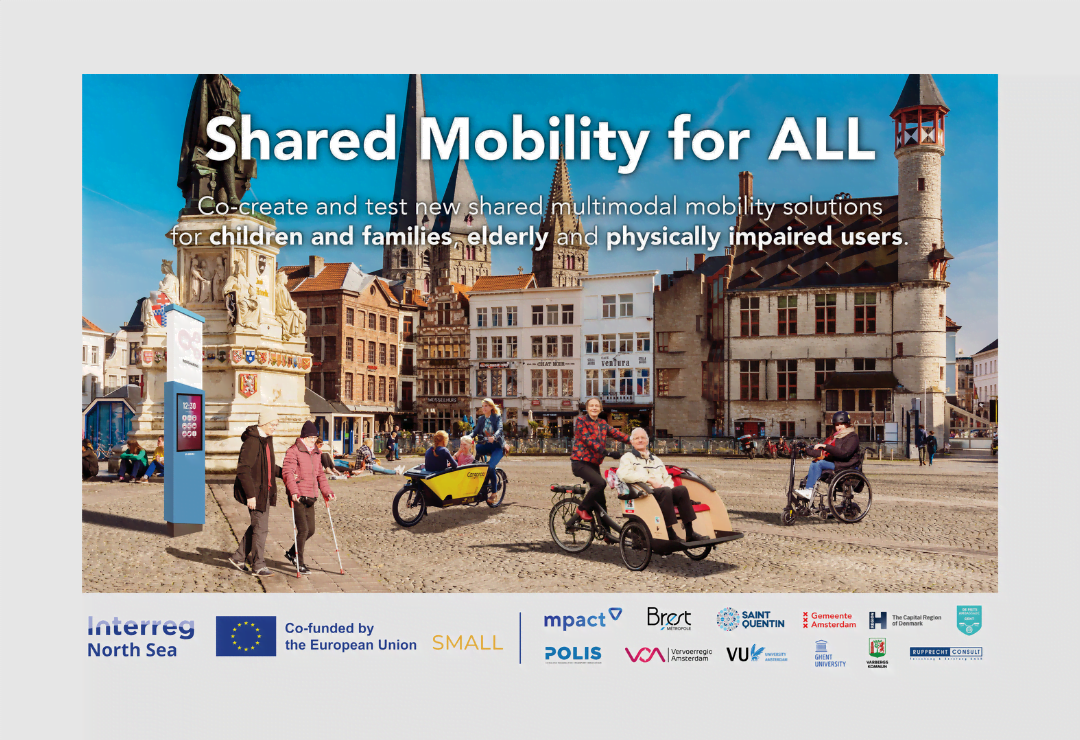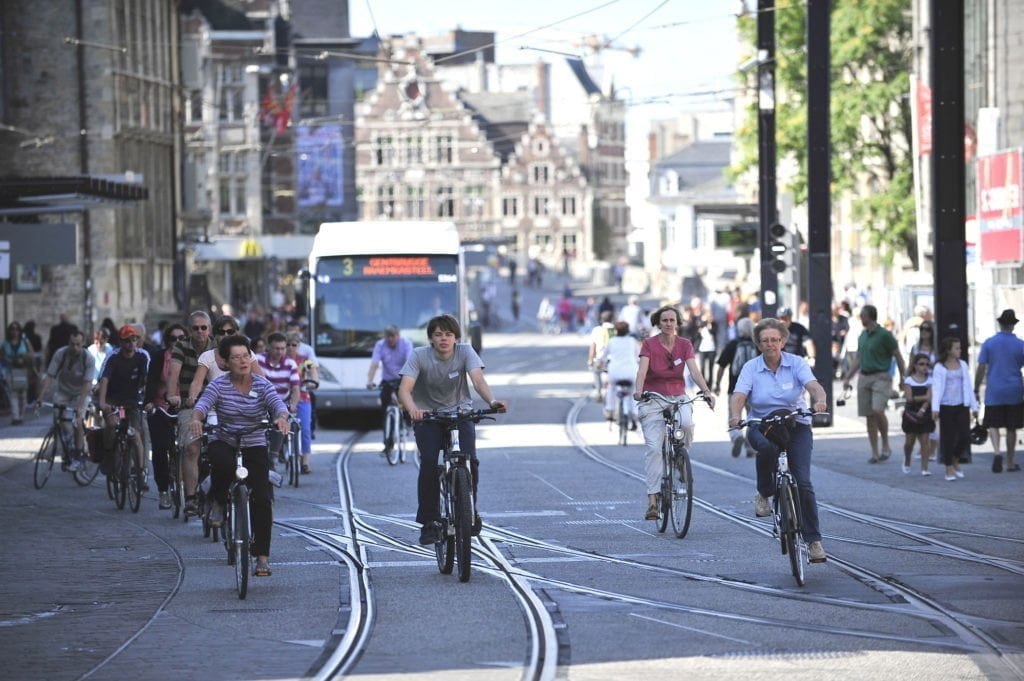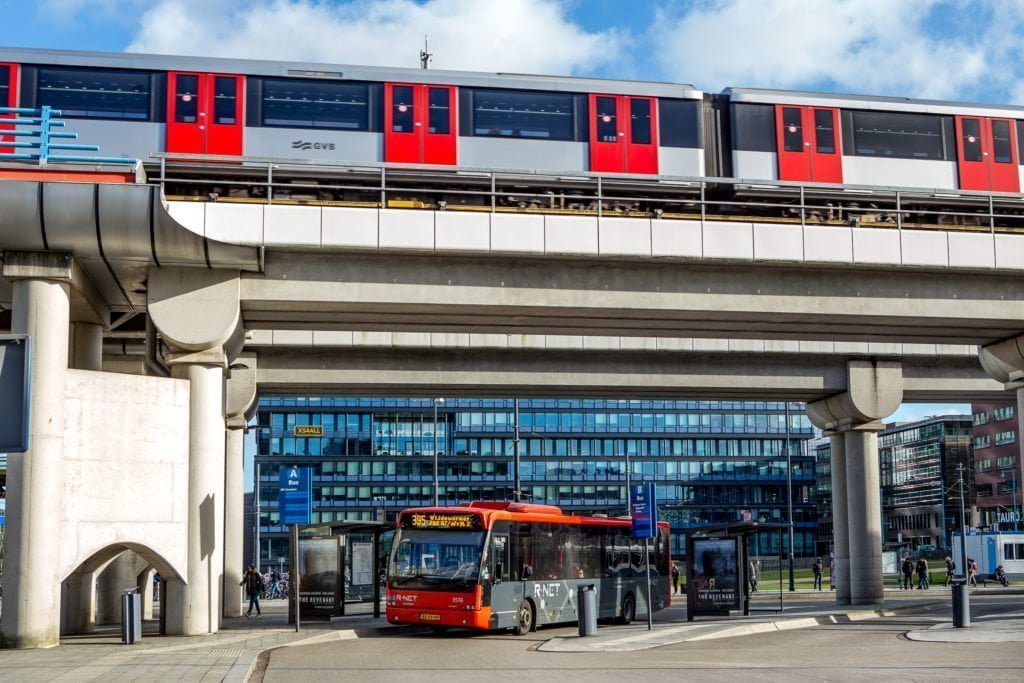SMALL puts the focus on shared mobility for ALL
Shared bikes, scooters, and vehicles are already transforming the way some of us move around the city. But these flexible and low-emission services are far from suitable for everyone: in comes SMALL!
Gaps in design and policy mean that a large majority of these solutions are used exclusively by young urban adults; with children and families, the elderly, and the physically impaired left behind.
The new Interreg North Sea Region project Shared multimodal Mobility for ALL (SMALL) aims to change this dynamic to ensure these solutions can be shared by all. By taking a people-focused approach, SMALL will explore how to make shared mobility accessible to children, families, the elderly, and physically impaired people - part of a wider group classified as people with reduced mobility (PRM).
POLIS is excited to be part of this project within which we will be involved in dissemination, communication, and expert-round table activities, getting together both POLIS members and externals.
Why do we need SMALL?
When you picture someone using a shared bike or scooter, you likely imagine a young, fully mobile person zipping down an urban street. There is a reason for this - the vast majority of shared mobility users fit this narrow description.
But this doesn’t have to be the case. Shared mobility solutions have the potential to be accessible to anyone. And on the surface, it would seem there are few barriers to anyone unlocking a bike or scooter and speeding away. So why do shared mobility solutions have such an exclusive group of users?
The answer is that shared mobility solutions are not yet designed or deployed with inclusivity in mind. Despite the first large-scale shared mobility solutions being launched in Copenhagen in 1995, the focus of operations has failed to expand from efficiency to accessibility. This means that operators have little knowledge about the demand for shared solutions among people with reduced mobility.
The perceived lack of market means that few adapted and inclusive shared mobility solutions have been tested in Europe to serve these users. A lack of testing leads to an absence of vision and strategy from public authorities and mobility operators to address a gap. Europe is yet to take an active role in making shared mobility truly accessible but there is a clear mindset shift from policymakers towards including all citizens in the design of our transportation system.
SMALL but aiming BIG
SMALL aims to break this cycle and lead both public and private sectors to include reduced mobility users in shared service planning. Led by Belgium NGO Mpact, the consortium composed of twelve European partners will work collectively during the next four years to address these challenges by:
- Better understanding and including the needs of the different users in shared mobility design by directly involving them in a co-creation process from the challenge definition to the evaluation of solutions.
- Deploying and testing different inclusive shared mobility solutions which build on market innovation (new vehicles), social innovation (solidarity and volunteering) and digital innovation (new mobile applications).
- Producing strategic guidelines building on the SUMP framework to help public authorities and mobility operators to plan and deploy inclusive shared mobility.
By the end of the project, our objective is to ensure public authorities are aware that shared mobility systems need to be designed for and with all future users. Informed policymakers will then be able to use SMALL resources including case studies and policy guidelines to initiate change.
To follow and participate in our journey towards putting the user at the centre of shared mobility, you can find SMALL on LinkedIn or check out our website.
The SMALL project is composed of 7 public authorities including the City of Amsterdam (NL), Vervoerregio Amsterdam (NL), the Capital Region of Copenhagen (DK), De Fiestssambassade Gent (BE), Brest Metropole (FR), the City of Saint-Quentin (FR), Municipality of Varberg (SE), mobility operator Mpact (BE), 3 knowledge organizations University of Gent (BE), The Vrije University of Amsterdam (NL), Rupprecht consulting (DE) and POLIS Network (BE).




